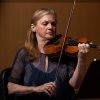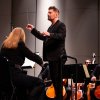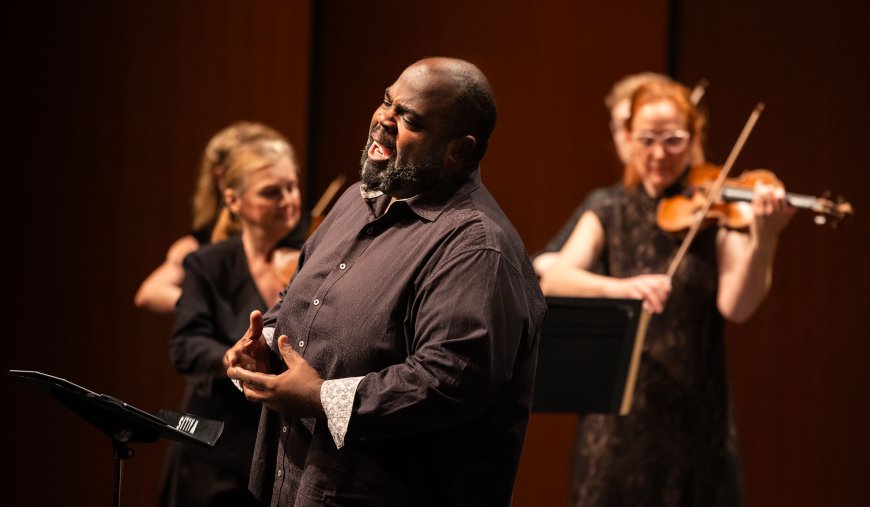
Postponed due to the Eaton and Palisades Fires, Los Angeles Chamber Orchestra’s welcome and joyful celebration of music by Baroque masters finally took place last week. The star of the show, titled “Celestials: Mobley + Vivaldi,” was rising American countertenor Reginald Mobley, an early-music specialist who has appeared at major festivals around the world. He excelled on Thursday night, May 22, at The Huntington’s Rothenberg Hall, supported by a disciplined and expressive ensemble led by LACO concertmaster Margaret Batjer.
The concert’s nine mostly short items explored “love, loss, and morality,” in the words of program annotator Meagan Mason. The selections expressed regal pomp, birthday wishes, heroism in battle, emotional turmoil, melancholy, and Christian sacrifice. Small Baroque trumpets, played with verve and precision by David Washburn and Erick Jovel, added luster and variety to the rich sonic palette. Eleven string players (six violins, two violas, two cellos, and bass) performed on modern instruments, joined on some pieces by two oboes, bassoon, and lute, plus Patricia Mabee on harpsichord and organ. The musicians, except for the cellists, played standing for the first half, Baroque style.
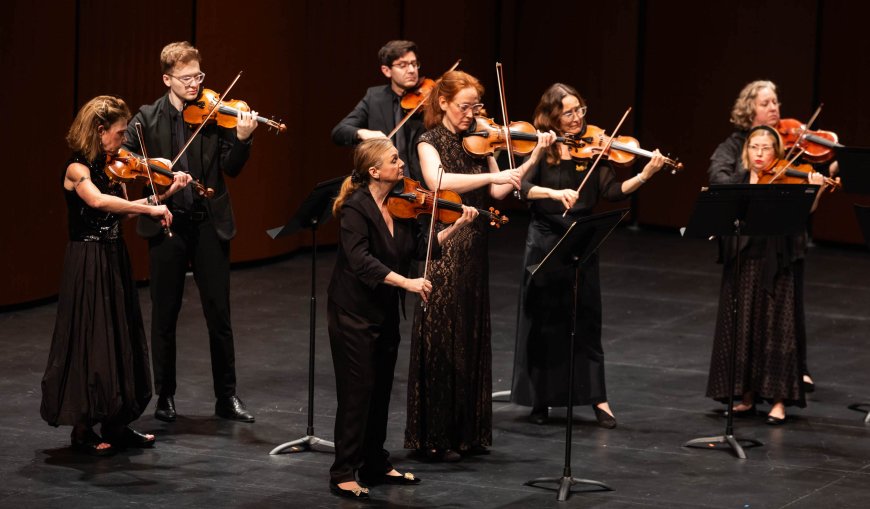
Countertenors frequently sing music intended for female altos or male castratos because their ranges are similar. The countertenor sound, however, is distinct and unique, with a ringing timbre in the upper range that’s somewhat unearthly and, yes, celestial. Mobley found this quality as he opened the concert with a sweet interpretation of the air “Eternal Source of Light Divine” from Handel’s Ode for the Birthday of Queen Anne, a shimmering tribute to royalty. Washburn provided sensitive accompaniment on trumpet, nicely matching Mobley’s vocal tone, which warmed up as the piece went on.
Two instrumental works by Handel followed. “The Arrival of the Queen of Sheba,” from the oratorio Solomon, describes a royal entrance into Jerusalem with a lavish entourage. Oboists Lara Wickes and Sarah Beck displayed perfect intonation and lyricism in a soulful duet with orchestra, and they returned for the Overture from the opera Rinaldo. Here, as elsewhere, the attacks were clean and forceful, especially in the fugal passages.
Mobley came back for another Handel aria, “Yet, can I hear that dulcet lay” from the oratorio The Choice of Hercules. The hero’s choice between virtue and pleasure is one we can all understand, portrayed vocally through long melismatic lines that Mobley negotiated with natural and easy technique, moving from his lower register to falsetto. “Can I those wilds of joy survey, / Nor wish to share the bliss I view?” asks conflicted Hercules.
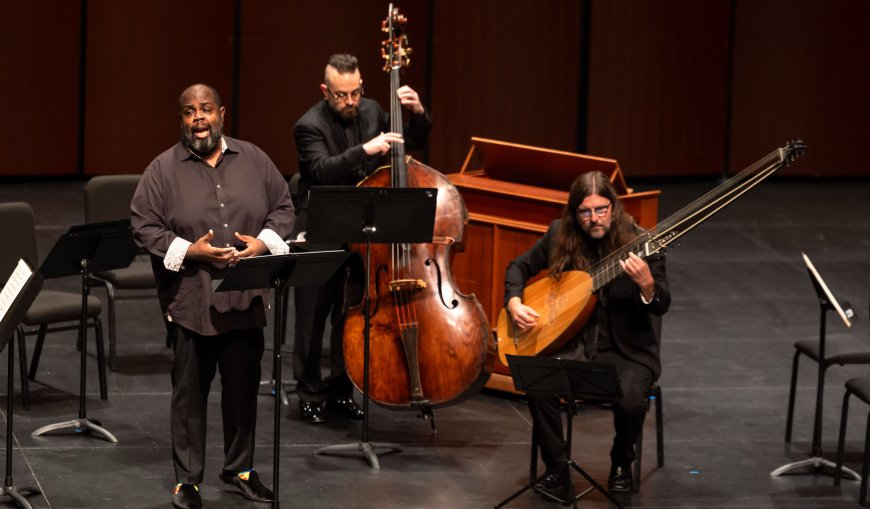
In Handel’s familiar Concerto Grosso in G Major, Op. 6, No. 1, cellist Trevor Handy and the outstanding violin duo of Batjer and Sarah Thornblade bantered skillfully with the full ensemble. The infectious dance rhythms came across with clarity and verve. Trumpeters Washburn and Jovel brought the first half to a rousing conclusion with their spirited and perfectly synchronized interpretation of Vivaldi’s invigorating Concerto for Two Trumpets in C Major, RV 537, the composer’s only known concerto for the instrument.
In the second half, Mobley took center stage with lutenist Kevin Cooper and bassist David Moore for two songs by John Dowland (“Flow, My Tears” and “Come Again, Sweet Love Doth Now Invite”). The spare continuo accompaniment allowed Mobley’s voice to stand out, rising upward with desire in “Come Again” and descending with dark sorrow in “Flow, My Tears,” Dowland’s most famous song.
Vivaldi’s restrained and pensive setting of the familiar Stabat Mater text — used by composers as different as Franz Schubert, Franz Liszt, Francis Poulenc, and Karol Szymanowski — portrays the suffering of Jesus’s mother through quiet repetitive gestures and long melismatic lines expressing sighs of anguish. Mobley found exactly the right approach, his voice glowing with resignation and faith.


